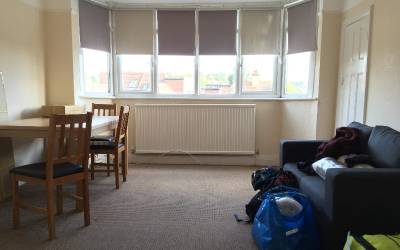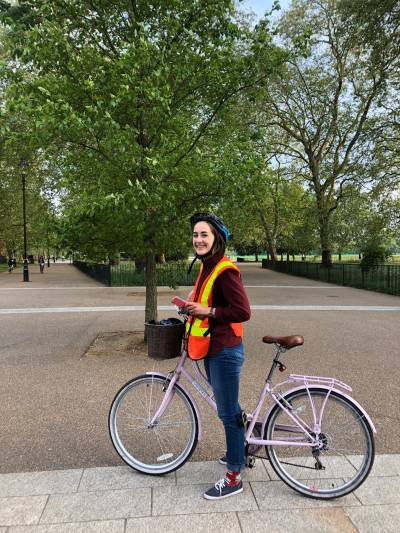Finding housing in London
When moving to a new city, finding housing can be one of the most overwhelming tasks. In a city as big as London, the options can seem endless. Based on my experience as an international postgraduate student, here are some tips to help you succeed in your housing search.
Housing in London – where to live?
Finding housing in London can be challenging – even after Covid, rents are high, and there are dozens of neighborhoods to choose from. It’s important to consider what your priorities are: is it to be close to campus, to live near nightlife, or to have a garden? Do some research on what London neighborhoods can meet your preferences. While Central London neighborhoods close to campus can be more expensive, if you’re willing to commute to campus, you can save on rent by living in Zone 2 or 3. Take a look at this Tube and Rail map to see which zones neighbourhood's fall into, UCL's main campus is in Zone 1.
Where to look: student accommodation
One option that can be attractive to international students is renting housing through UCL. Most UCL halls are within a reasonable commute to campus, and many can meet accessibility or family living needs. One major advantage is that as an international student, you can safely sign a lease months before you come to London and know that you’ll have suitable housing when you arrive. UCL accommodation is usually more expensive than similar private rentals and most units don’t have their own kitchen – but using communal kitchens alongside students from different disciplines can be a great way to make friends! Check out the options here.

Move-in day at my first London flat
Where to look: private rentals through real estate agencies
You can save money by renting through the private sector, but this takes more effort and knowledge – which can be challenging for international students. Thousands of real estate agencies operate in London and they have diverse offers, though they’re often expensive. In my first year in London, I found a 2-bed apartment by walking into a few different agencies and asking if they could show anything suitable. As a tenant in the UK you don’t have to pay a fee to the agency, but agencies often require lots of documentation or guarantors to ensure the rent will be paid – luckily, you might be eligible for UCL to act as your guarantor, and you can find more information about this scheme here. The most important thing to remember when dealing with agencies: do your research! Make sure you know what your rights as a tenant are, verify that the agency you’re talking to is legitimate, and NEVER pay anything until you’ve seen the apartment. Because London has high housing demand, there are lots of scammers who try to take advantage of international students – keep yourself safe! Here are some useful linkns to refer to:
- Student's Union UCL overview of finding accommodation - check out the average rents map!
- 10 tenancy rights evey student should know
- Citizens advice: your rights and responsibilities as a tenant
Where to look: private rentals through flat-sharing websites
Another option is to look for a flat-share. You can find an available room in an apartment shared with other people. This is a great way to meet people off-campus, and there are more lower-cost options to find on websites like Spareroom or Facebook housing groups. Although many agencies post on these sites, I recommend pursuing listings posted by existing residents looking to fill a room in their flat-share, as you get a better idea of the people you’ll be living with. To make the most of your search, narrow down your search parameters – I found my current apartment by searching LGBTQ+-friendly, women-only flatshares in South London. Again, this option is easier to use if you have the chance to visit London a few weeks or months early to visit flats, as there can be lots of competition in September. As with real estate agencies, you should know your rights before jumping in, and be prepared to put some work into the search. If you’re lucky, though, you could find housing that will make your experience in London even more special!
London’s housing market can be intimidating, but with the right knowledge and a little time, you can discover a range of choices. Good luck with your search!

Chilling with my favourite Spareroom flatmate
About the author
Celine is a second-year student on the two-year City Planning MPlan course at the Bartlett School of Planning, enrolling at UCL after an undergrad at Sciences Po in France and Columbia University in New York. Her dissertation research focuses on the relationship between queer spaces and high streets. Celine lives in South London and loves discovering the city by bike.

 Close
Close


